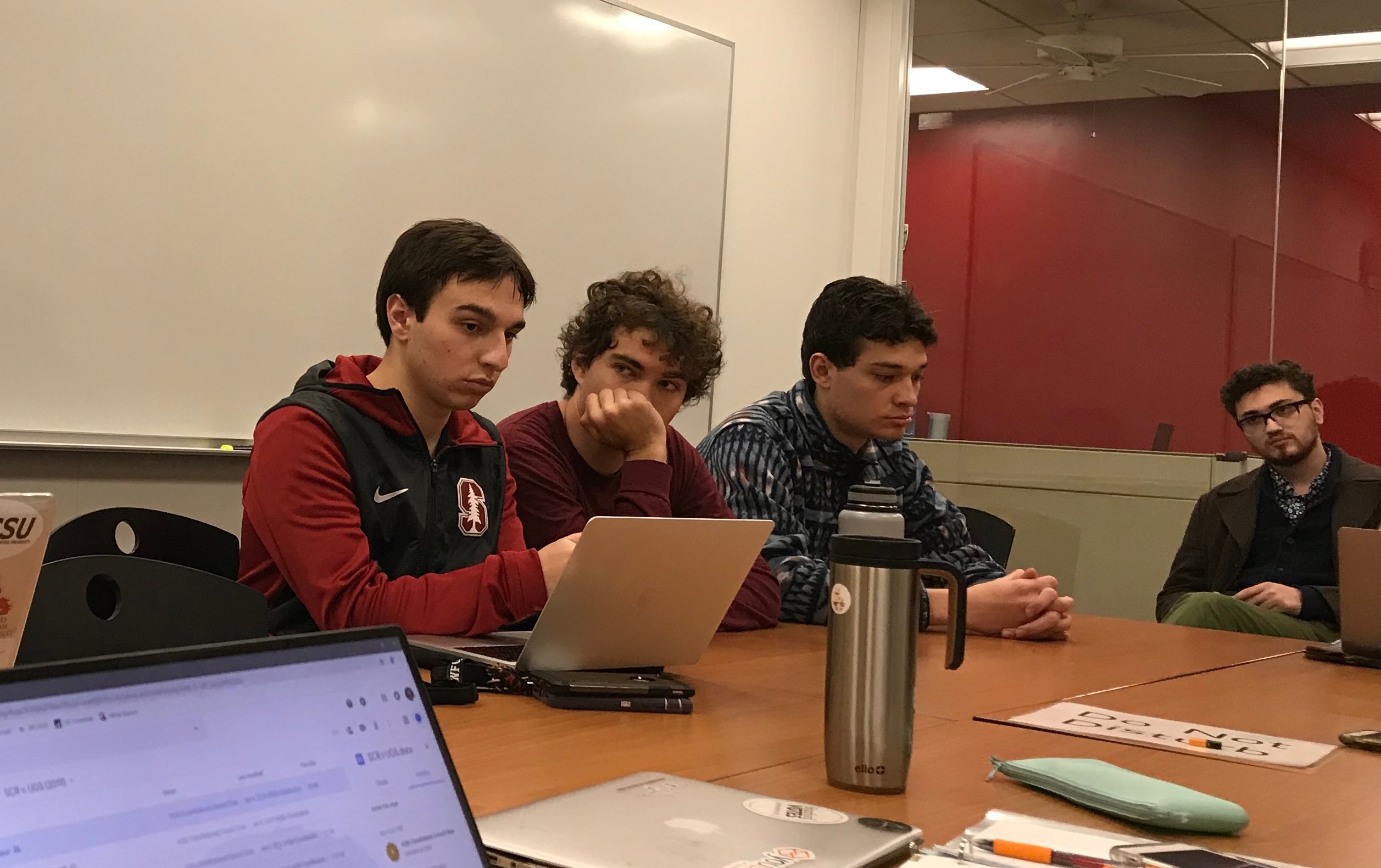In its second meeting, the Constitutional Council voted 3-1 to defer a vote on the frivolity of the case Stanford College Republicans v. Undergraduate Senate for two weeks, reasoning that the Senate’s Tuesday decision to fund conservative filmmaker Dinesh D’Souza’s visit rendered the College Republicans’ (SCR) case moot.
During the meeting, the Council defined frivolity according to Black’s Law Dictionary as “a legal move in a lawsuit clearly intended merely to harass, delay or embarrass the opposition.”
In an addendum submitted to the Constitutional Council on Wednesday morning, SCR amended its initial complaint, writing that it does not plan to drop the case until the funding allocated through the internal review has been transferred to its MyGroups account.
Despite this, Council Chair Jayaram Ravi ’19 argued that because the Senate had already voted to give SCR the funding they requested, SCR’s case had no “underlying grievance.”
“At this point, it’s hard to see what [the underlying grievance] is, given the Senate’s reconsideration,” Ravi said. “If there is one, I would prefer documentation that more clearly articulates it.”
Members of both SCR and the Senate attended the meeting, but only the members of the Constitutional Council were allowed to speak.
Filed on Friday, SCR’s complaint alleged that the Senate had violated the ASSU Constitution by discriminating against conservative viewpoints in its decision to deny SCR funding to host D’Souza.
However, in Tuesday’s meeting, the Senate voted to revoke its rejection of the internal review, thereby allocating $3,617 to SCR for the D’Souza event.
In SCR’s addendum, treasurer Ben Esposito ’21 asserted that until the organization receives funding, “SCR continues to sustain injury through the [Undergraduate Senate’s] initial unconstitutional rejection of the Internal Review on 12/9/2018 and the subsequent delay of funds.”
The Council, however, felt that the addendum shifted the focus of the case away from its original question of whether the Senate had the right to reject the internal review.
“It’s no longer in the Senate’s hands,” Ravi said. “They made the vote, and right now it’s just a bureaucratic, standard process. To hold them liable for that process doesn’t make sense.”
Funding allocated through the standard grant process is transferred to student groups by Stanford Student Enterprises (SSE), not the Senate. Because less than a day passed between the Senate’s revote and the Constitutional Council meeting, the Council saw no reason to suspect that SSE was stalling the disbursement of funding to SCR.
Rather than vote directly on the frivolity of the case, the Council voted to defer two weeks in order to give SSE sufficient time to transfer funds to SCR’s account.
The Council also noted that they could meet earlier than two weeks, if SCR were to submit an amended complaint.
“My recommendation would be that SCR restructure and rewrite their petitioner’s complaint to fit their current concerns if they decide to carry this case forward,” wrote Council member Carson Smith ’19 in a statement read by Ravi at the meeting.
SCR did not respond to The Daily’s multiple requests for comment.
This article has been corrected to reflect that the vote to defer Stanford College Republicans v. Undergraduate Senate was 3-1, not unanimous. The Daily regrets this error.
Contact Erin Woo at erinkwoo ‘at’ stanford.edu.
